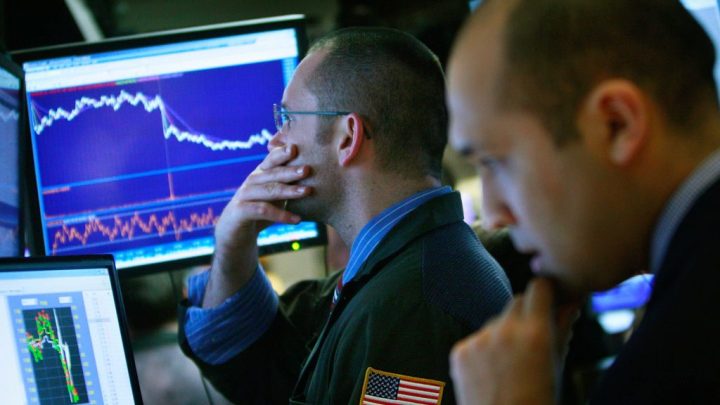
Stocks fell sharply Monday on Wall Street on a combination of coronavirus fears and plunging oil prices, triggering a brief, automatic halt in trading to let investors catch their breath.
The price of oil sank nearly 20% after Russia refused to roll back production in response to falling prices and Saudi Arabia signaled that it will ramp up its output.
While low oil prices can eventually translate into cheaper gasoline, they are wreaking havoc on already struggling energy companies and countries that depend on oil, including the No. 1 producer, the United States.
The war between the giant oil producers came just as Italy heads for a huge hit to its economy as it enforces a lockdown on 16 million people in the northern part of the country, the heart of its manufacturing and financial industries. The turmoil is expected to push Italy into recession and weigh on the European economy.
The carnage in other markets was nearly as breathtaking as in oil. U.S. stocks careened closer to a bear market, signified by a drop of 20% from its record, while a measure of fear in the market touched its highest level since the 2008 financial crisis. European stock markets fell even more sharply, and Treasury yields plunged to more record lows in the latest vicious swings for a market that has rocked investors the last couple weeks.
The S&P 500 plunged as much as 7.4% in the first few minutes of trading, and losses were so sharp that trading was temporarily halted. Stocks trimmed their losses following the halt, and the index was down 4.8%, as of 11:44 a.m. Eastern time.
The Dow Jones Industrial Average lost 1,255 points, or 4.9%, to 24,605 after briefly being down more than 2,000. The Nasdaq gave up 4.4%.
The carnage in the energy sector was particularly arresting. Marathon Oil, Apache Corp. and Diamondback Energy each sank more than 40%. Exxon Mobil and Chevron were on track for their worst days since 2008.
“The path of least resistance is still down,” said Liz Ann Sonders, chief investment strategist at Charles Schwab.
Treasury yields careened lower as investors dove into anything that seems safe, even if it pays closer to nothing each day. Traders are increasing bets that the Federal Reserve will cut interest rates back to zero to do what it can to help the virus-weakened economy, perhaps as soon as next week.
All the drops are the result of fear of the unknown. As COVID-19 spreads around the world, many investors feel helpless in trying to estimate how much it will hurt the economy and corporate profits, and the easiest response to such uncertainty may be to get out. After initially taking an optimistic view on the virus — hoping that it would remain mostly in China and cause just a short-term disruption — investors are realizing they likely woefully underestimated it.
The virus has infected more than 110,000 worldwide, and Italy on Sunday followed China’s lead in quarantining a big swath of its country in hopes of corralling the spread. That sparked more fears, as quarantines would snarl supply chains for companies even more than they already have.
There’s a lot happening in the world. Through it all, Marketplace is here for you.
You rely on Marketplace to break down the world’s events and tell you how it affects you in a fact-based, approachable way. We rely on your financial support to keep making that possible.
Your donation today powers the independent journalism that you rely on. For just $5/month, you can help sustain Marketplace so we can keep reporting on the things that matter to you.












